After Kia’s 2024 CEO Investor Day, Electrek described Kia’s actions as a means of “shaking things up with a new mid-to-long-term business plan” in response to Kia’s sales slowing down, not just in the US but globally. Kia is still focused on electrifying its model lineup, which means hybrids and electric vehicles (EVs), it is just planning to devote more of its manufacturing capacity to hybrid vehicles and lower priced EVs, and I suspect that means less production of or no significant increase in production of its existing EV lineup.
I also suspect it means that while Kia will stick to plans to introduce the smaller, lower priced EV3 and EV4 in the US in the coming months or model years, it may also mean that Kia opts to bring the EV5 to the US and other markets it would otherwise not target with that compact, electric SUV.
Furthermore, Kia has apparently got plans for a $30k-ish electric hatchback or crossover next year (think of it as a “spiritual successor” to the Soul EV) in the EV2 as well.
Why is Kia doing this, you may ask. The answer is simply due to an “expected” slowdown in EV demand (interesting that qualification since Kia’s US EV sales were up 88% in Q1 this year) as well as a response to low-cost Chinese EVs that will challenge all other brands in the markets they are sold in. I’ll note that there are currently no Chinese EV passenger vehicles on sale in the US, however in terms of EVs we are really the second tier market behind China and Europe. Kia’s proactive stance isn’t surprising as other mainstream brands are taking the same stance when it comes to EVs from China eventually showing up in the US; they simply fear that China will dominate every other brand in sales in the US, and elsewhere, since their prices will be so low.
I actually think that, for the US market, this is not only premature, it is alarmist on the part of automakers. If we look at the arrival of Korean or Japanese cars in the US market, decades ago, we can see that it took several years, decades even, for the new brands to gain significant market share. While Americans and Europeans may seem to have an inexhaustible appetite for cheap Chinese made electronics and devices, I do not think this will translate into much more expensive electric vehicles.
Even if a new Chinese EV might someday go on sale in the US for $20,000 or so, I predict it would take a decade or more for the Chinese brands to achieve sales of EVs that current EV powerhouse Tesla enjoys today in the US. Just look at how well newly arrived Vietnamese EV maker Vinfast is doing in the US market for an example of what the Chinese brands would likely experience when, and if, they go on sale in the US. Therefore, the extreme (in my opinion) stance that Kia and other mainstream brands are taking regarding slowing or expected slowing of EV sales is really more about EV sales outside of the US (and perhaps the US market’s recent lack of appetite for more expensive EVs that cost well over the average price of a new car). If and when Ford, GM, Kia, Hyundai and others can offer more than a single compact or subcompact hatchback styled EV for a starting price of $25,000 - $30,000, they’ll find good demand in the US.
The Chevy Bolt is perhaps the best example of this. When such brands can also offer an electric Ford Maverick, Kia Seltos (which we’ll see with the forthcoming EV3), Hyundai Tuscon or Santa Cruz or when the Chevy Equinox EV eventually goes on sale for $30,000 (it is only available in higher priced trims initially), American car buyers are likely to buy them in sufficient numbers as long as the charging infrastructure is there and automakers keep to their lower price promises. Otherwise, this journalist feels like Kia has succumbed to the same paranoia or knee jerk reaction that other brands have.
I feel they may fail to realize that uncertainty in the economic and political spheres is really an opportunity (granted for them to focus on lower cost EVs, which is part of what they are doing) and that those are “selling points” for affordable EVs versus gas powered vehicles (imagine the scenario where the cost of gasoline increases even a few dollars per gallon due to global conflicts, natural disasters, etc.).
While reluctant consumers may need hybrids to get them used to driving electrified vehicles, this is largely a brief, transitory condition that really goes away as soon as we get over the hump of that first 20% or so of total sales.
But what do you think? Is it in any way a negative thing that Kia is joining the ranks of the hybrid first crowd? Is it really more of a good thing because every little bit helps and hybrids will help steer more people toward EVs, eventually? Please leave your questions and comments below.
Images courtesy of Kia.
Justin Hart has owned and driven electric vehicles for over 15 years, including a first generation Nissan LEAF, second generation Chevy Volt, Tesla Model 3, an electric bicycle and most recently a Kia Sorento PHEV. He is also an avid SUP rider, poet, photographer and wine lover. He enjoys taking long EV and PHEV road trips to beautiful and serene places with the people he loves. Follow Justin on Torque News Kia or X for regular electric and hybrid news coverage.
Set as google preferred source


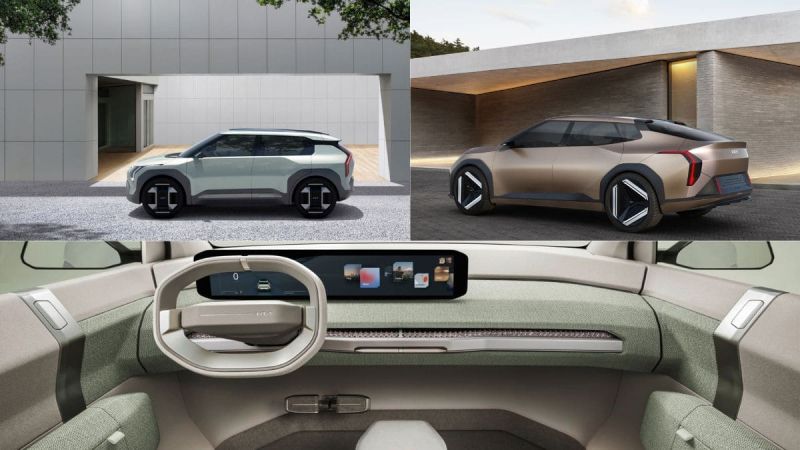




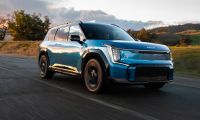
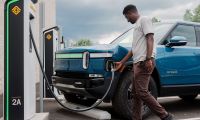

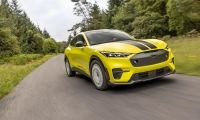
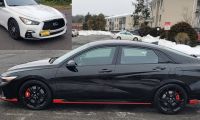
Comments
I will be sticking to my…
Permalink
I will be sticking to my PHEV until charging stations post a roadside sign displaying the cost per kWh, just like gas stations post the cost per gallon.
What if the charging…
Permalink
In reply to I will be sticking to my… by Robert Futscher (not verified)
What if the charging stations showed you their cost per kWh in an app or on your cars touch screen? I would think, since they are all pretty much internet connected, that could be a more cost effective and perhaps “greener” way to accomplish the same thing (which I agree, would be very nice… I do have such a feature in my Tesla already and some apps like PlugShare can basically tell you that, though it takes some poking at the screen to get to the info).